FUEL GAUGING DEGRADATION - When all tank sensors are available, the accuracy error of the fuel quantity indications on the FUEL SD page is less than ______ of tank capacity (on ground and in flight).
During high pitch angle phases (more than 10 ° nose down or more than 15 ° nose up), the fuel gauging accuracy may normally decrease down to ± 3 % of the fuel tank capacity.
TOTAL FUEL USED INDICATION - What does it indicate?
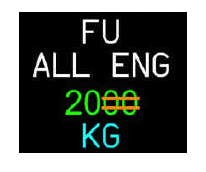
TOTAL FUEL PENALTY INDICATION - The TOTAL FUEL PENALTY indication appears when an ECAM alert that affects the fuel consumption is triggered. What does this indication mean?

DETECTION OF LARGE FUEL LEAKS - If one fuel flow is _____ more than the other fuel flow during 4 min, the ECAM triggers the ENG 1(2) FUEL LEAK SUSPECTED alert.
Some A350s are equipped with a fuel jettison system. Fuel is jettisoned simultaneously from the wing tanks and the center tank, if the center tank contains fuel.
FUEL ON BOARD INDICATION - What does this indication mean?

FUEL USED (FU) INDICATION - This indication means:
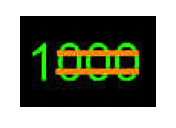
DETECTION OF LOW FUEL LEAKS - If one fuel flow is _____ more than the other fuel flow during a confirmation time, the ECAM triggers the ENG 1(2) FUEL LEAK SUSPECTED alert.
The confirmation time depends on the difference between the fuel flows (the confirmation time decreases when the difference between the fuel flows increases).
The fuel system includes:
A fuel level sensor has two states : either "dry" or "wet".
The Fuel Tank Inerting System (FTIS) provides a fully automatic protection against fuel tank fire and explosion by creating inert (non-flammable) conditions within the free space of:
Advertisement
Surge tanks temporarily collect fuel that may overflow from any tank, when the quantity of fuel in that tank is close to the maximum capacity (e.g. If fuel expands by more than 2%, or in case of tight turns during taxi). Fuel that enters the surge tank returns to the wing tank.
Fuel from the surge tank returns to the wing tank, via a dedicated non-return valve.
Fuel is stored in the:
Fuel tanks, and their components, are symmetrical. There are three tanks that store fuel: 1 tank in each wing and 1 center tank.
Some A350s are equipped with a fuel jettison system. The jettison system enables to reduce the aircraft gross weight from MTOW to MLW in less than _____
APU INDICATION - What does it indicate?

WING TANKS - FUEL QUANTITY INDICATION - What does this indicate?
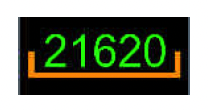
Each wing tank contains a collector cell that has a fuel capacity of approximately 1 800 kg (3 970 lb).
Limits between the wing tanks and the center tank are selected so that an engine 1 or 2 rotor burst will not damage the wing tanks.
A leak in the fuel system is detected by:
TOTAL FUEL PENALTY - The computation is performed after _____ of level flight in clean configuration and is frozen during turbulences or following some failures.
The TOTAL FUEL PENALTY indication appears on the FUEL SD page and on the CRUISE page if an ECAM alert that affects the fuel consumption is triggered.
WING TANKS - FUEL QUANTITY INDICATION - What does this indicate?
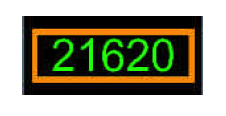
Advertisement
WING TANK - FUEL TEMPERATURE INDICATION - What does this indicate?
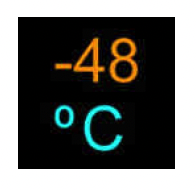
When at least one of the temperature sensors of the wing tank is immersed, the fuel temperature is displayed on the FUEL SD page.
The Fuel Tank Inerting System (FTIS) provides a fully automatic protection against fuel tank fire and explosion by creating inert (non-flammable) conditions within the free space of all fuel tanks (i.e. center tank and wing tanks). Standard air contains approximately 21 % of oxygen. The objective of the FTIS is to obtain an average oxygen concentration of _____.
FUEL GAUGING DEGRADATION (FQI DEGRADED) - If some tank sensors fail in a tank (e.g. FQI probes), the FQMS is still able to compute the fuel tank quantities, but the accuracy is degraded.
Some A350s are equipped with a fuel jettison system. To rapidly reduce the aircraft gross weight, the jettison system can be used to discharge fuel overboard. The output rate is approximately ________.
FUEL QUANTITY MANAGEMENT SYSTEM (FQMS) - There are two FQMS, that control and monitor the fuel system.
(FOB + FU) - BLOCK - Fluctuation value - As part of regular fuel checks, the flight crew compares the quantity of fuel used (FU) versus the quantity of fuel that is no longer in the fuel tanks (BLOCK-FOB).
This fluctuation is due to the combination of the accuracy of the gauging system (used to compute the FOB and the BLOCK) and the accuracy of the fuel flowmeter (used to compute the FU). If the value is abnormally negative, the flight crew may suspect a fuel leak. If the value is abnormally positive, the flight crew may suspect a fuel quantity over reading.
MANUAL TRANSFER FROM WING TANK TO CENTER TANK - In normal operation, fuel transfer from a wing tank to the center tank is not required. However, the flight crew can initiate a manual gravity transfer, via the FUEL overhead panel, as requested by ECAM procedures.
The engine fuel leak detection is available when all of the following occur:
TOTAL FUEL PENALTY INDICATION - When the TOTAL FUEL PENALTY indication appears, it remains displayed during the entire flight.
TOTAL FUEL PENALTY - The total fuel penalty is computed in real time and is the comparison between the real fuel flow and a theoretical fuel flow. The theoretical fuel flow is computed via a simulation of an aircraft that would fly in the same conditions (same speed, same altitude, etc.). The PERF factor is taken into account in the computation in order to display only the total fuel penalty.
Advertisement
TOTAL FUEL PENALTY - Following an event (e.g. an ECAM alert with fuel consumption increase appears), the computation requires 10 minutes of validation time in order to become stable.
Only 2 minutes of validation time is required.
Each wing has a surge tank:
Each fuel tank connects to the outside atmosphere via these surge tanks. This limits the differential pressure between the tanks and the atmosphere, and maintains the pressure within structural limits.
The center tank pumps are running when:
After takeoff, the center tank pumps start running a few minutes after the flight crew moves the FLAPS lever to 0.
FUEL SYSTEM IN ELECTRICAL EMERGENCY CONFIGURATION - If the electrical emergency configuration is due to a failure of both engines:
Each engine has a LP valve, that is used to stop the flow of fuel to the engine.
(FOB + FU) - BLOCK INDICATION - This indication means:
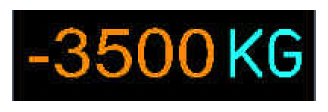
Associated with the following amber ECAM alert: FUEL LEAK SUSPECTED
Some A350s are equipped with a fuel jettison system. Jettison starts as soon as both pushbuttons are pressed and a final gross weight has been entered in the FMS FUEL&LOAD page
Jettison starts as soon as both pushbuttons are pressed, even if no jettison final gross weight has been entered. The jettison final gross weight can be entered or updated at any time.
